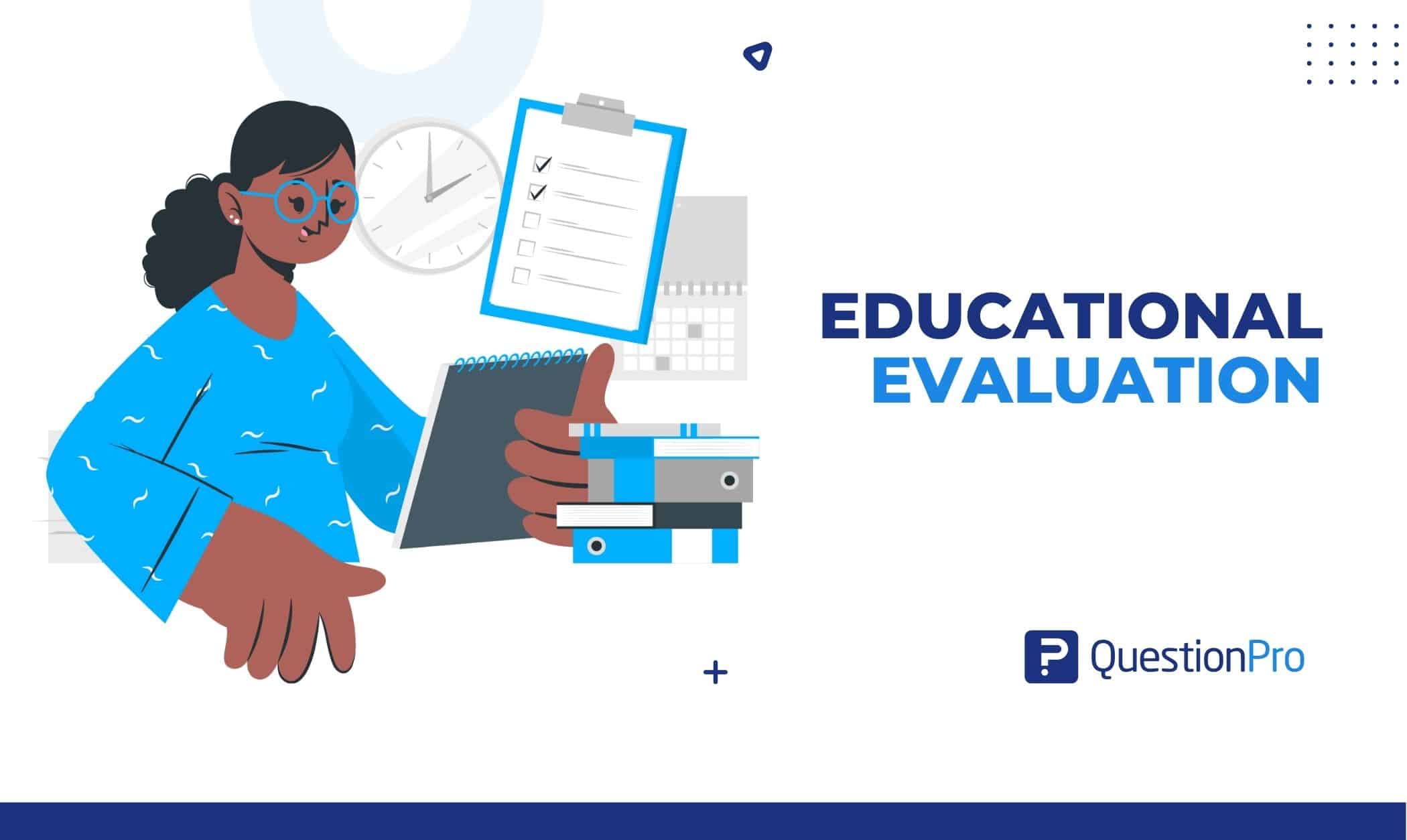 may be based on the professional judgment of the people doing it. Find out about it, its importance & principles." width="703" height="420" />
may be based on the professional judgment of the people doing it. Find out about it, its importance & principles." width="703" height="420" /> may be based on the professional judgment of the people doing it. Find out about it, its importance & principles." width="703" height="420" />
may be based on the professional judgment of the people doing it. Find out about it, its importance & principles." width="703" height="420" />
Educational evaluation is acquiring and analyzing data to determine how each student’s behavior evolves during their academic career.
Evaluation is a continual process more interested in a student’s informal academic growth than their formal academic performance. It is interpreted as an individual’s growth regarding a desired behavioral shift in the relationship between his feelings, thoughts, and deeds. A student interest survey helps customize teaching methods and curriculum to make learning more engaging and relevant to students’ lives.
The classroom response system allowed students to answer multiple-choice questions and engage in real-time discussions instantly.
The practice of determining something’s worth using a particular appraisal is called evaluation. This blog will discuss educational evaluation, its importance, and its principles.
An educational evaluation comprises standardized tests that evaluate a child’s academic aptitude in several topics.
The assessment will show if a kid is falling behind evenly in each subject area or whether specific barriers are preventing that student from performing at grade level in a particular subject.
Educational evaluators generally hold a master’s or doctoral degree in education or psychology, and assessments take three to five hours to complete.
Examining the success of program interventions is part of educational evaluation. When it comes to education, these usually have to do with learning (like reading), behavioral, emotional, and social development (like antibullying programs), or more general issues (like changes to the entire school system, like inclusive education).
In the teaching-learning process, educational evaluation is crucial since it serves a common goal.
The following principles form the foundation of educational evaluation:
Whatever the learner does should be evaluated every day. Only then could the learner have a better grasp of the language.
In this process, we don’t just look at the learner’s schoolwork but his extracurricular activities. Both types of activities can help learners gain more experience.
It helps a teacher know how much a child can understand and how valuable the teaching material is.
Evaluation decides which student is better at using his knowledge and understanding in different situations to help him succeed.
Educational evaluations are meant to present evidence-based arguments regarding whether or not educational results may be improved by implementing intervention measures. The evaluation objectives are broadening along with the parameters of educational assessment.
Understanding the various learning exams and evaluations will help you identify the testing most helpful for your child and the causes of any issues or learning disparities they may be experiencing.
You might need a professional’s help to decide whether your child needs an evaluation and what kind of assessment they need.
Students have a lot to say. Therefore, it should be significant to let them know their input is needed to change how they are taught. Quick survey creation is possible with programs like QuestionPro and LivePolls, which can help improve academic performance and foster student experience.